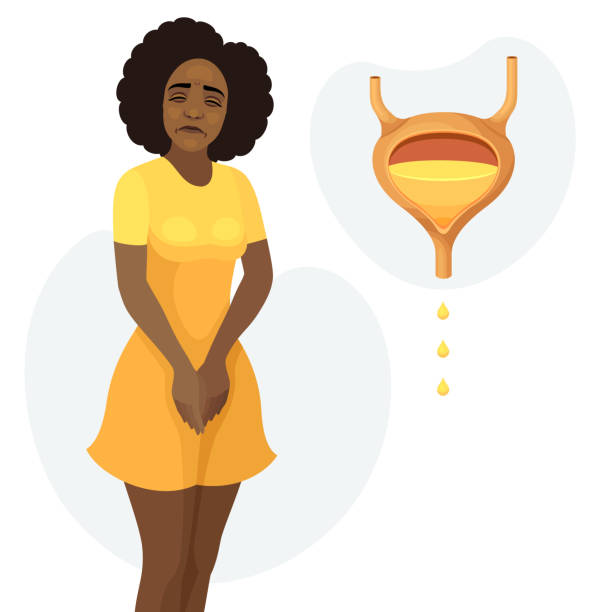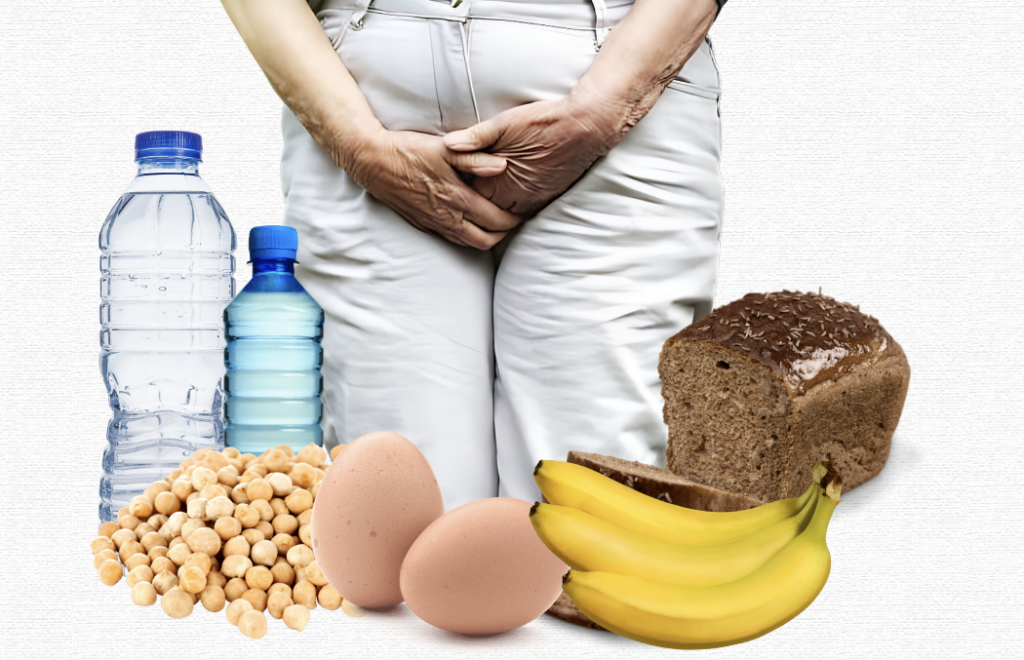Health Conditions, What to Eat and Drink
Discover the Foods That Can Beat Urinary Incontinence
Urinary incontinence, a prevalent ailment that affects millions around the world, can have a substantial impact on a person’s quality of life. While pharmacological therapies and lifestyle changes play important roles in controlling this condition, dietary choices can have a significant impact. Certain foods have qualities that can worsen or improve urinary incontinence symptoms. Understanding which foods are good might help people make informed dietary decisions and effectively manage their disease.
In this article, we will delve into the world of nutrition and look at a variety of foods that are known to boost urinary health, providing great insights and practical advice for people looking for dietary methods to relieve urinary incontinence symptoms and improve overall health.

Understanding Urinary Incontinence
Urinary incontinence is a condition in which a person has involuntary urine leaking. This disorder can range from minor urine leakage to a full lack of bladder control. It can affect anyone, although it is more prevalent in older people, particularly women.
Types and Symptoms
Urinary incontinence can be classified into several categories, each with its own set of symptoms. The most prevalent types of urine incontinence are as follows:
- Stress incontinence is caused by pressure on the bladder, such as by coughing, sneezing, or laughing. It is more frequent in women who have given birth, but it can also occur in men following prostate surgery.
- Urge incontinence happens when a person has a sudden urge to urinate and is unable to reach the bathroom in time. It is also known as an overactive bladder and is more prevalent in elderly persons.
- Overflow incontinence occurs when the bladder does not fully empty, resulting in overflow. It is more common in males who have enlarged prostates.
- Functional incontinence happens when a person’s physical or mental handicap prevents them from using the bathroom on time.
The symptoms of urine incontinence differ according to the kind of incontinence. The most prevalent symptoms are as follows:
- Urine leaks during vigorous activity like coughing, sneezing, or laughing.
- Sudden and urgent needs to urinate
- Frequent urination
- Unable to totally empty the bladder.
- Bedwetting
Common Triggers
Certain causes might cause or exacerbate urine incontinence. The most prevalent triggers are as follows:
- Caffeine is a diuretic, causing increased urine output and bladder irritation. It appears in coffee, tea, soda, and chocolate.
- Alcohol can stimulate urine output and irritate the bladder. It may also impair the nerves that control the bladder.
- Spicy foods can irritate the bladder, leading to spasms.
- Acidic meals, including citrus fruits and tomatoes, can trigger bladder spasms.
- Artificial sweeteners like saccharin and aspartame can irritate the bladder and induce spasms.
- Constipation can increase bladder pressure and lead to pee leaks.
- Urinary tract infections can irritate the bladder, resulting in acute impulses to urinate.
Finally, recognizing the many forms and symptoms of urine incontinence, as well as typical triggers, can help you manage the problem. Making dietary modifications, such as avoiding particular foods and beverages, can help to alleviate symptoms of urinary incontinence and enhance quality of life.

Dietary Management Strategies
Urinary incontinence can be treated with dietary changes and tweaks. The food management measures listed below can help alleviate the symptoms of urine incontinence.
Hydration and Fluid Intake
Staying hydrated is beneficial to general health and can help prevent urinary tract infections and constipation, which can exacerbate urinary incontinence. Drinking enough water is recommended, and caffeine, alcohol, and carbonated beverages should be limited or avoided because they can irritate the bladder and cause urine frequency.
Fiber-Rich Foods and Digestive Health
Constipation can exacerbate urine incontinence by placing strain on the bladder. Consuming a high-fiber diet can help encourage regular bowel motions and relieve constipation. Fruits and vegetables, whole grains, and legumes are all rich sources of fiber. Probiotics and prebiotics may also assist in boosting digestive health and relieve constipation symptoms.
Identifying Personal Food Triggers
Certain foods and beverages might irritate the bladder, worsening urinary incontinence. Keeping a meal journal may help you identify personal food triggers. Acidic foods like citrus fruits and tomatoes, spicy foods, chocolate, and artificial sweeteners are some of the most prevalent triggers. It is crucial to note that not all triggers impact everyone in the same manner, thus identifying personal triggers requires trial and error.
Overall, dietary adjustments can be an effective treatment for urine incontinence. Staying hydrated, eating a fiber-rich diet, and understanding personal dietary triggers can all help to reduce symptoms and improve overall quality of life.

Recommended Foods for Bladder Health
Maintaining a healthy bladder is critical to overall well-being. A diet high in bladder-friendly foods can help prevent urinary incontinence and other bladder issues. Here are some of the healthiest foods to incorporate into your diet to promote bladder health.
Bladder-Friendly Foods
Fruits and vegetables include high levels of vitamins, minerals, and antioxidants, all of which enhance bladder health. Berries, in particular, have high levels of antioxidants, which protect the bladder from free radical damage. Bananas are also a good choice since they contain potassium, which helps regulate bladder function.
Whole grains are another important part of a bladder-friendly diet. They are high in fiber, which helps to prevent constipation and relieve bladder strain. Lean proteins, such as fish and nuts, are also beneficial for maintaining muscle mass and supporting the pelvic floor.
Eggs are a good source of protein and include choline, which is necessary for bladder function. Honey, another bladder-friendly food with antibacterial characteristics, can help avoid urinary tract infections.
Foods to Avoid
Caffeinated beverages, alcoholic drinks, citrus juice, and tomatoes are all known to irritate the bladder and exacerbate urine incontinence. If you have bladder difficulties, you should limit or avoid certain foods and drinks.
To summarize, a diet high in bladder-friendly foods can help avoid urine incontinence and support overall bladder health. By incorporating the recommended items into your diet and avoiding bladder irritants, you can keep your bladder healthy and avoid future bladder problems.

Lifestyle and Behavioral Adjustments
Urinary incontinence can be controlled with lifestyle and behavioral changes. The next subsections of this article will go over some of the changes that can be done to improve bladder control.
Bladder Training and Exercises
Bladder training is the process of gradually increasing the interval between urinations in order to educate the bladder to hold pee for longer periods of time. This can be accomplished by waiting a few more minutes before using the restroom. The interval between urinations can be gradually increased until the individual can hold pee for longer durations of time.
Pelvic floor exercises, sometimes called Kegel exercises, can help strengthen the muscles that support the bladder. These exercises consist of tightening and relaxing the muscles that govern urine. A doctor or physical therapist can advise you on how to correctly do these activities.
Stress Management and Healthy Habits
Stress might exacerbate urinary incontinence symptoms. Deep breathing, meditation, and yoga are all stress-management strategies that can help you relax. It is also critical to maintain healthy habits such as adequate sleep, a well-balanced diet, and frequent exercise.
Limiting fluid consumption can help to minimize the frequency of urinating. Caffeine, alcohol, and acidic meals should be avoided as these can all irritate the bladder. Increasing fiber intake can also help avoid constipation, which can exacerbate urine incontinence.
Overall, lifestyle and behavioral changes can help improve urinary incontinence symptoms and quality of life. To create a personalized treatment plan, talk with a doctor or urologist. A dietitian can also recommend dietary adjustments to assist treat urine incontinence.
Conclusion
Finally, following a diet rich in foods known to promote urinary health can be an important part of treating urinary incontinence. Individuals who incorporate fruits, vegetables, whole grains, lean meats, and healthy fats into their regular diets may experience less symptoms and better overall bladder control. Additionally, staying hydrated and avoiding recognized bladder irritants such as caffeine, alcohol, and spicy meals might help to improve urinary health. While dietary adjustments may not completely eradicate urine incontinence, they can help manage symptoms and improve overall well-being.
Consulting with a healthcare expert or registered dietitian for specialized dietary suggestions can help you create a healthy and supportive diet that is suited to your specific needs. Individuals can improve their quality of life and manage urine incontinence by making proactive food choices and lifestyle changes.
Trusted Health, Wellness, and Medical advice for your well-being


